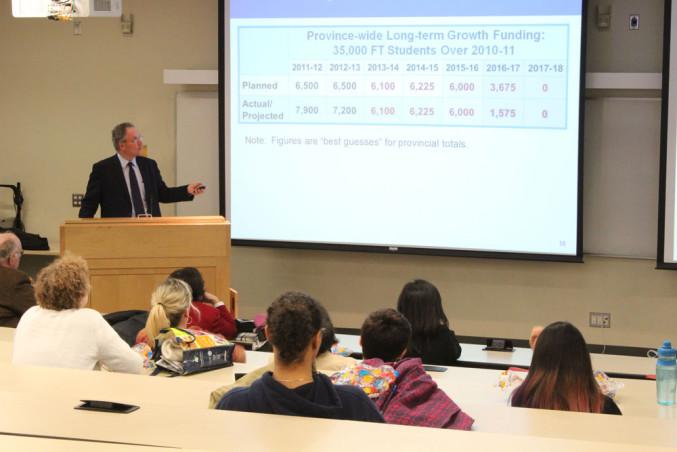By Allison Ridgway
An Ivy League education with no need to buy textbooks, wake up early or pay tuition may sound like every student’s dream, but in reality, all of this is available with the click of a mouse.
Universities such as the Massachusetts Institute of Technology (MIT), Harvard, and, recently, the University of Toronto, have created hundreds of free online courses on subjects ranging from computer science to medieval England. These massive open online courses (MOOCs) are offered free through online educational start-ups to anyone with Internet access.
Some believe MOOCs will tear down education’s ivory towers and welcome those who cannot afford post-secondary schooling.
Others say they sound the death knell for university life as we know it.
However, Ryerson has no plans to create MOOCs or join a MOOC start-up site, said Ryerson’s Vice Provost Academic Christopher Evans.
“Currently there seems to be no effective way to offer these types of courses other than for a university or firm to cover all the creation and delivery costs without any means to obtain revenue,” said Evans.
MIT and Harvard spent $30 million last year developing edX, a non-profit MOOC platform that uses video lessons, forums and virtual laboratories to teach.
Coursera, a company that offers MOOCs, is backed by $22 million from universities and venture capitals.
Despite their popularity, MOOCs have a high dropout rate. According to the Duke Centre for Instructional Technology, the average MOOC has a dropout rate of 85 to 97 per cent.
edX claims to have one million students and offers 67 courses, while Coursera claims to have four million students and offers 437 courses.
“At any time there are typically thousands of students enrolled in a single MOOC, so this will inevitably have an effect on the quality of the class,” said Nancy Walton, Ryerson’s e-learning director. “It’s tough to feel connected to other learners in a 10,000 person classroom.” The platforms are often used by students and employees who need to brush up on a skill or learn a new one quickly, Walton said.
Brian Lesser, director of Ryerson’s computing and communications services agrees.
“MOOCs are an interesting set of experiments where the normal student supports, like being able to talk directly to a professor, is removed because of the potentially massive number of participants,” he said. “Without those supports I don’t think the current crop of MOOCs represent a complete system of learning and teaching.” Still, MOOCs can be revolutionary learning tools, Walton said.
“One area where MOOCs could be indispensible is in developing countries,” she said.
“They could empower people who otherwise might not have access to universities halfway around the world, or even those a few hours away. If they do have Internet access, they can enroll in and take a MOOC online for free, developing skills and building their education.”










Leave a Reply